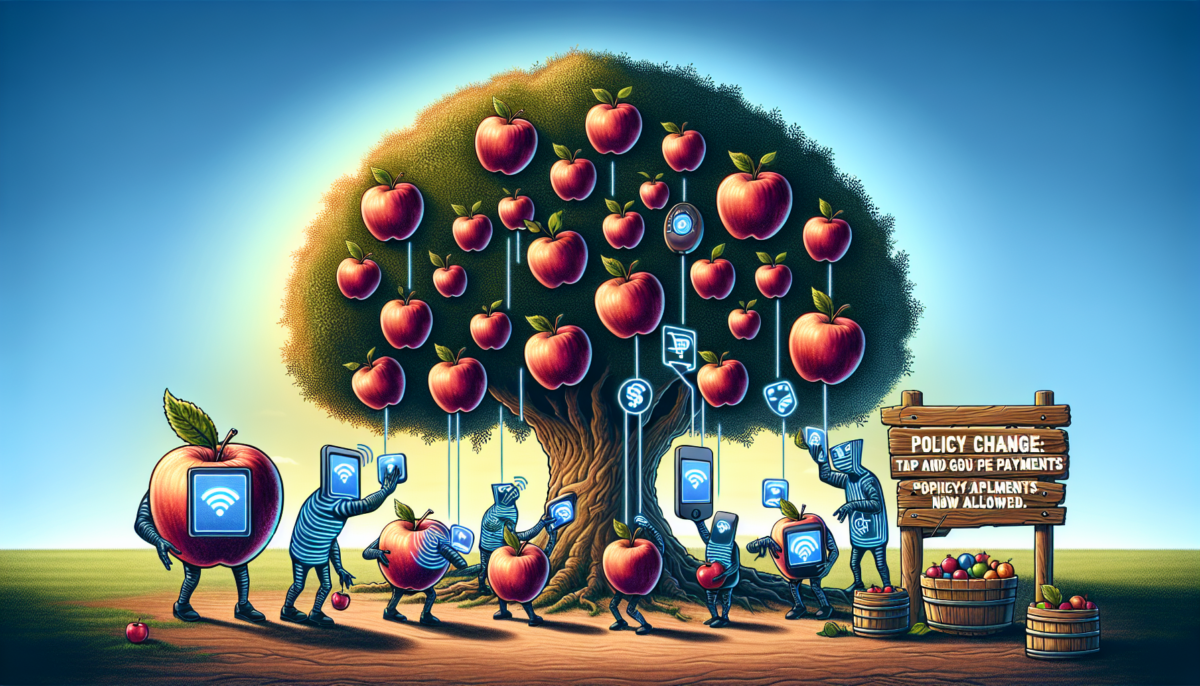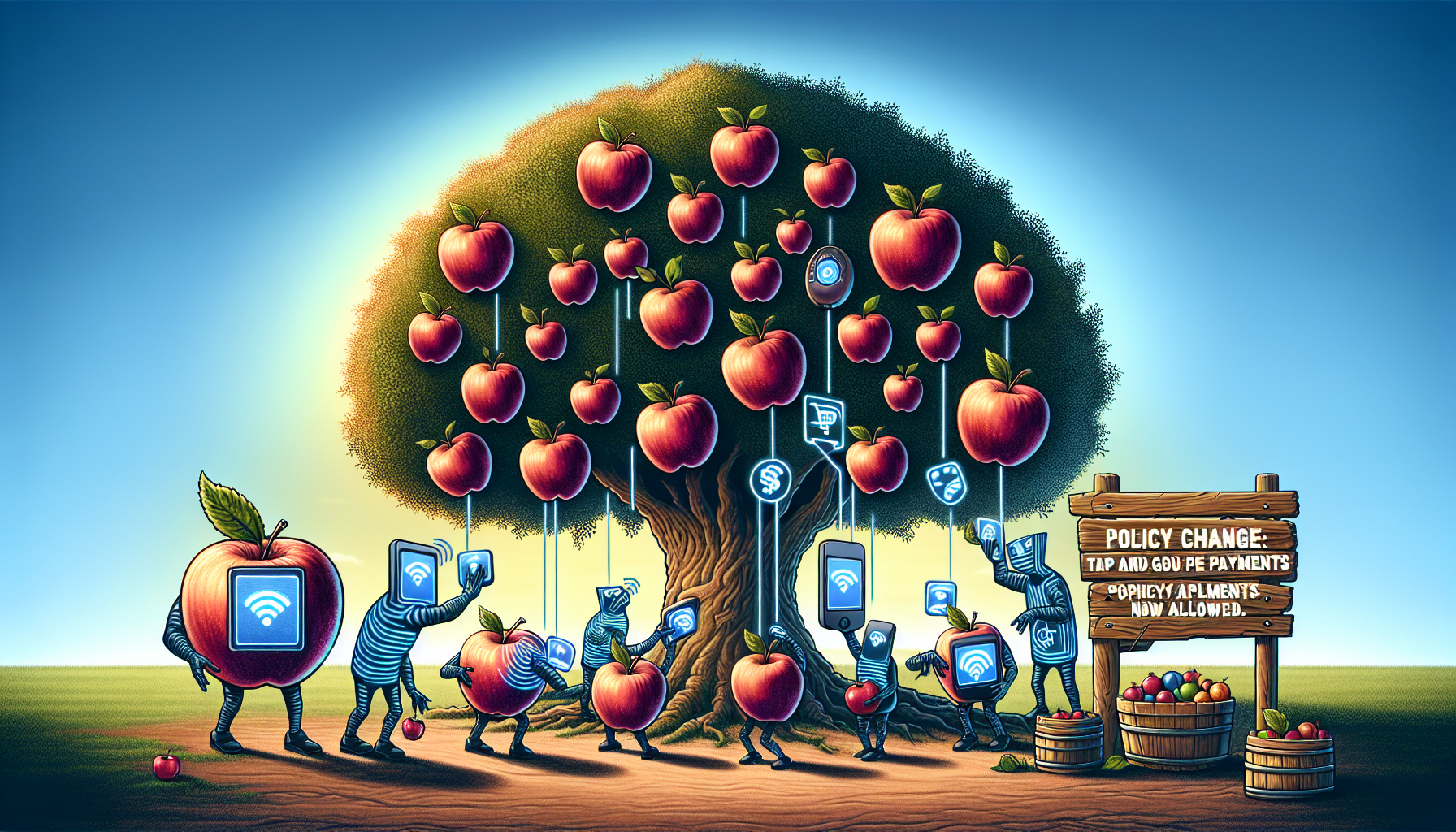Apple Allows Competitors to Utilize Tap-and-Go Payments in Significant Policy Change
We independently review everything we recommend. When you buy through our links, we may earn a commission which is paid directly to our Australia-based writers, editors, and support staff. Thank you for your support!

Apple Expands Tap-and-Go Payment Options to Include Competitors in Significant Policy Change

Quick Read
- Apple is allowing competitors to use its tap-and-go mobile payment system.
- Action driven by EU antitrust rules outlined in the Digital Markets Act (DMA).
- Apple is subject to three investigations related to the DMA.
- The European Commission’s decision mandates adherence for a decade.
- Over 3000 banks and issuers across Europe provide Apple Pay.
- The ruling permits developers to utilize Apple’s NFC technology.
- The Norwegian application Vipps MobilePay is pleased with the decision.
The Apple and Digital Markets Act
The Digital Markets Act (DMA) seeks to create fair competition among major technology companies and provide users with more options. Apple is currently facing scrutiny through three active investigations. The company’s App Store policies and recent contractual terms for developers have been called into question. EU antitrust regulator Margrethe Vestager has stated that Apple has not yet adhered to these rules.
Opening NFC Technology
In a major policy change, Apple is set to grant access to its near-field communication (NFC) technology to competitors. This choice is the result of a four-year investigation conducted by the European Commission. Apple’s proposal will be effective for 10 years, enabling developers to create payment applications that use Apple’s NFC technology. The goal of this initiative is to enhance competition within the mobile wallet market.
Effects on European Programmers
Apple’s concessions will let European developers incorporate tap-and-go payments into a wide range of applications, such as car keys, transit systems, corporate badges, home keys, hotel keys, merchant loyalty/rewards, and event tickets within their iOS apps. This adjustment is anticipated to make Apple’s NFC technology more accessible and foster innovation among competitors.
Feedback from Industry Stakeholders
The Norwegian mobile payment application, Vipps MobilePay, which had previously raised concerns regarding Apple Pay’s limitations, embraced the recent change. This advancement permits Vipps MobilePay and other service providers to compete on an equal footing with Apple, potentially resulting in a wider array of consumer-friendly choices within the market.
EU Antitrust Penalties
In March, Apple encountered its inaugural EU antitrust fine—a substantial 1.84 billion euros (AUD 2.96 billion) for limiting competition from Spotify and other music streaming competitors through its App Store regulations. This penalty highlighted the EU’s dedication to addressing anti-competitive actions by major tech firms.
Microsoft’s Antitrust Settlement
Independently, Microsoft finalized an agreement with cloud services entity CISPE to resolve an antitrust grievance, therefore evading an EU probe. Vestager characterized this resolution as a “promising outcome,” mirroring the EU’s overarching strategy to encourage fair competition in the technology industry.
Summary
Apple’s choice to allow competitors access to its tap-and-go mobile payment system is a significant development in the technology sector, compelled by stringent EU antitrust laws. By granting rival developers access to its NFC technology, Apple aims to enhance competition and innovation within the mobile wallet market. This action aligns with the goals of the Digital Markets Act and illustrates the growing regulatory pressures on major tech firms to maintain a fair and competitive environment.
Q&A
Q: What led Apple to unlock its tap-and-go payments service?
A:
The decision was driven by continuous investigations and regulatory pressures from the EU under the Digital Markets Act (DMA), which seeks to promote fair competition among large technology companies.
Q: Could you explain what NFC technology is?
A:
NFC is an abbreviation for near-field communication. It facilitates contactless payments by enabling devices such as smartphones and smartwatches to interact with payment terminals when they are in close range.
How long will Apple’s proposal to make its NFC technology accessible remain effective?
A:
Apple’s proposal will remain in effect for a decade, allowing developers to utilize its NFC technology for creating payment apps.
How many banks and issuers are presently providing Apple Pay services in Europe?
A:
Presently, over 3000 banks and issuers across Europe provide Apple Pay as a payment method.
Q: What effect does this have on developers?
A:
This modification enables developers to develop and provide tap-and-go payment solutions utilizing Apple’s NFC technology, thus promoting competition and innovation in the mobile wallet industry.
Q: What penalty did the European Union impose on Apple?
A:
In March, Apple received a fine of 1.84 billion euros (equivalent to AUD 2.96 billion) from the EU due to its App Store policies, which were deemed to restrict competition from Spotify and other music streaming competitors.
What was the response of other companies to Apple’s decision?
A:
The Norwegian mobile payment application, Vipps MobilePay, expressed approval of Apple’s decision, as it enables them to compete fairly with Apple and other mobile wallet service providers in the market.
What role does Microsoft play in this situation?
A:
Microsoft and cloud services group CISPE have reached a settlement, resolving an antitrust complaint and sidestepping an EU investigation. This action forms part of wider regulatory efforts to maintain fair competition within the tech industry.
